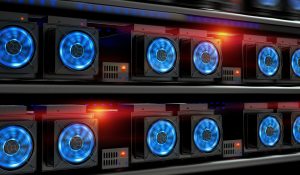
by Mengjia Yan on Jul 20, 2022 | Security is an overlooked component in our computer architecture education. I often get the following questions from undergraduate students and junior PhD students: “I have a strong interest in hardware security, but how shall I start learning or teaching myself about...
Read more...

by Yatin Manerkar on Jul 14, 2022 | Tags: Conference, ISCA
After 2 years of being virtual, computer architects eagerly came down to New York City for the first in-person ISCA since 2019. Enrollment reached record numbers, with 977 registrants as of the first day of the conference. Almost half of the registrants were students,...
Read more...

by The Computer Architecture Student Association (CASA) on Jul 6, 2022 | Tags: Academia, CASA, Community, Diversity
The Computer Architecture Student Association (CASA) is back with the summer DEI reading group! Like last year’s iteration, we’ll meet every other week, read an article or watch a short movie together and discuss it! No pre-meeting reading is required! Who can...
Read more...

by Gokul Subramanian Ravi and Fred Chong on Jun 14, 2022 | Tags: Quantum Computing
Quantum chemistry has been an important benchmark application for emerging quantum computers. In this article, we will revisit the big-picture motivation for this application and how the iterative nature of the algorithm presents unique challenges and opportunities...
Read more...

by Jayashree Mohan on Jun 8, 2022 | Tags: Accelerators, GPUs, Machine Learning, Systems
Machine Learning (ML) training is an important workload in enterprise clusters and cloud data centers today. Products like virtual assistants, chatbots, and web search which are an integral part of our life now, are empowered by the innovations in ML and AI research....
Read more...

by Biswabandan Panda on May 31, 2022 | Tags: Academia, Microarchitecture, Research
The day is April 14, 2023. The MICRO deadline is just a few hours away, and micro-architects are skeptical about their MICRO submissions. Why? There are only a few sessions on microarchitecture from MICRO 2018 to MICRO 2022. Is this the end of microarchitecture...
Read more...

by Jaime H. Moreno, Hubertus Franke, Paul Crumley, Mengmei Ye on May 25, 2022 | Tags: Composable Systems, Datacenters, Security, Virtualization
Sharing computing resources in a microprocessor among multiple tenants (users, tasks) through virtualization, as currently done in datacenters, edge, and embedded environments, conflicts with the need to provide security, isolation, and performance stability. This...
Read more...

by Martha Kim and Moin Qureshi on May 23, 2022 | Tags: Conferences, Review, Reviewing, tcca
Scientific progress relies on sound reviewing processes. The integrity of our review process is paramount, and it rests on our handling of ethical concerns and conflicts of interest. These issues have been compounded by the rapid growth in the computer architecture...
Read more...

by Neeraja Yadwadkar on May 12, 2022 | Tags: Cloud computing, Datacenters, Machine Learning
It was more than 10 years ago that I first started studying machine learning (ML). Serendipitously, I ended up leveraging ML techniques developed for biological sequence analysis for optimizing storage systems. In the recent past, I have focused on optimizing and...
Read more...

by Emery Berger on May 10, 2022 | Tags: Accelerators, Blockchain, Cryptocurrencies
INTEL LAUNCHES NEW BITCOIN MINING CHIP, BLOCKSCALE Intel’s new bitcoin mining chip, the Intel Blockscale ASIC, will ship in Q3 2022 to select customers. (Bitcoin Magazine, April 2022) STOP! Before you read even one more sentence of this article: if you are currently...
Read more...












